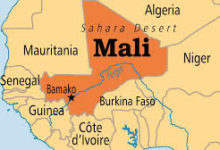
Floods set to worsen food, security crises, Nigeria’s long-term stability, warns SBM Intelligence
- Food production and security sets to get worse as a result of flood
The world is undergoing rapid changes as a result of human activities and these changes have resulted in the melting of glaciers. Consequently, the world is faced with climate change at an unprecedented level. Hurricane Fiona made landfall In America and the Caribbean, destroying power lines, roads, houses and telecommunication infrastructure. South-East Asia has not been spared of floods whose patterns are governed by the volume of rain that comes with the summer Monsoon season. In the state of Himachal Pradesh in India, annual Monsoon floods have killed more than 1,550 people in the last five years.
Both Afghanistan and Pakistan have also been flood-ravaged, resulting in the loss of lives and massive destruction of food crops. Climate change definitely has a direct impact on food systems and food security and as such, the 2022 floods which have affected at least 40 countries pose bad news for food security. The World Food Programme and the Food and Agriculture Organisation have said the food security situation in countries such as Ethiopia, Nigeria, South Sudan and Yemen is highly concerning.
Africa has been hit disproportionately by the fallout from climate change, which has aggravated droughts and flooding across the continent in recent years. In 2022 alone, no less than 1,466 deaths have been recorded across the entire continent. Nigeria has also experienced exceptional flooding this year. According to the National Emergency Management Agency, 33 of 36 states in Nigeria have so far experienced floods. This was the subject of a recent report by Lagos-based geopolitical research firm, SBM Intelligence.
Across the continent, the FAO reckons that Africa will produce 4% less cereals than it did last year due to low rainfalls in Kenya and dried-out hectares of land in Somalia and Ethiopia. Regionally, 38.2 million people are projected to be food insecure across West and Central Africa while 10 of the 48 Asian nations recognised by the UN are food deficit.
“Nigeria must drive public and private investment in building disaster-resilient communities by building physical infrastructures that can withstand disasters and ensuring proper maintenance. The government must also invest in the people by building the capacity of the local people to understand and implement disaster risk reduction strategies in the communities to reduce anthropogenic factors contributing to disasters such as flooding.”
An analyst at SBM Intelligence, Glory Etim, said, “Nigeria currently deals with an inflation rate of about 17% which experts believe is a significant understatement of the true state of things. The floods will exacerbate the existing food and security crises which may have a larger than life influence on the country’s stability on the long term. This is because food imports cannot be adequately relied upon to fix the looming shortage as countries that serve as Nigeria’s main import markets are also dealing with shortages due to the war in Ukraine, as well as a glaring foreign exchange shortage that have bedeviled Nigerian importers for sometime.
Adetokunbo Akingbala, the cofounder of PosterVillam Ltd, an agricultural extension services provider, said that more than a million hectares of farmland had been submerged by flooding, and that given that we are currently in the harvest period, he expects a 15% -27% increase in food prices by December.
Ironically, agriculture is simultaneously a major contributor to climate change, and a victim of it, as flooding around the world shows. Recent events should make clear the need for urgent and concerted actions by countries to reverse climate change and build in climate resilience. SBM Intelligence’s Etim added, “Nigeria’s case is not totally removed from the world’s problems but it is important for any solution to this problem to take the Nigerian context into account. And in this context, data is key. The Nigerian meteorological agency have performed below expectation in its advisory role to disaster management agencies and state governments in that it not only did not see the need to warn states prone to flooding during the August break, it also does not have enough data over the years to accurately predict a weather pattern that may prove useful for disaster planning.








